H.A. Byrd's Blog, page 2
November 4, 2021
Is Fantasy for Children?
 Photo by Emmanuel Acua
Photo by Emmanuel Acua Why does he march
Through that dream that he's in,
Covered with glory and rusty old tin?
—Man of La Mancha
In distant times, we heard songs and stories around the fire or the stove. Until relatively recently in human history this was the case worldwide, and some few cultures have retained this tradition. I have a great interest in stories and their importance in our world. Oral stories were for everyone, often incorporating simple lessons but also comedy for adults to enjoy. Traditionally, stories were told repeatedly and understood in different ways depending on a person's mood and at different times of life. Many stories open doors to other realities for the purpose of learning how to live in this one.
It was when we started writing down stories that we segregated them into children's literature or content for adults. In the early days of printing, old oral stories were published as children's stories. It seems to me that the evolution of the western concept of childhood coincides very much with the evolution of the printed word. As printed material became more easily obtainable, and children's literature became more accessible, the modern notion of childhood developed.
Our notion of childhood is useful. Children need protection and to be treated differently than adults. But do we go too far? Our society has a tragic divide between generations, causing all sorts of disconnection. One of the issues is that far too many people believe play and fantastic ideas are generally for children or the childish. How absurd! Imagination and romanticism feed the creativity that improves our lives.
So, here's my advice to everyone on the planet: Be curious about life. Have interest in the world around you, the small things and the large. Consider smiling at strangers. Indulge your imagination. Be yourself! And maybe read a good, thought-provoking fantasy now and then.
Youth has no age.—Pablo Picasso
October 16, 2021
Has the unicorn lost its relevance?
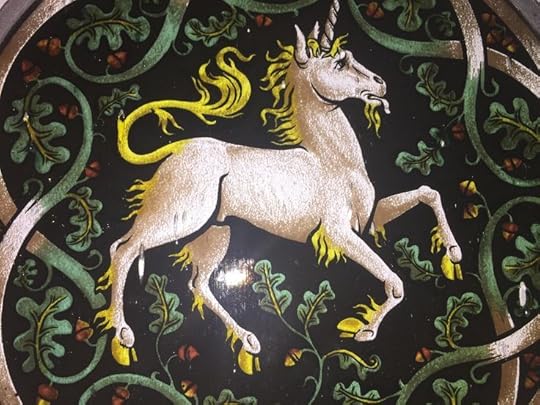
Has the unicorn lost its relevance?
In modern society, the status of unicorns has shifted.
An image search for "unicorn" in one's browser, with 1970s, 1980s, 1990s respectively, will reveal a dramatic change in the general perception of unicorns.

As a more conservative attitude took over in the western world, people began to tire of the particular romantic idealism of the 1960s and '70s. For this reason, although dragons remained interesting, unicorns, along with rainbows, found themselves shoved into the realm of glittery saccharine toys for little girls. How tremendous an insult to a creature so sublime! However, because unicorns love damsels so much, I don't suppose they hold this ironic degradation against us.

Nowadays, the magical creatures have attracted some new meanings. As a slang term, the word "unicorn" denotes a rare find. Most commonly, a rare person: either a job applicant who perfectly fits a long list of requirements or a woman suitable to complete a polyamorous relationship. About five years ago, a fun millennial nostalgia about the pastel pony franchise of their own 1980s childhoods found unicorns to be associated with purple and pink tinted sweets, kicking off a huge unicorn fad. Around this time the LGBT community adopted the unicorn due to these colors and its current relationship with rainbows and glitter. This certainly gives the word relevance, but has little to do with the traditions of the mythological beast.
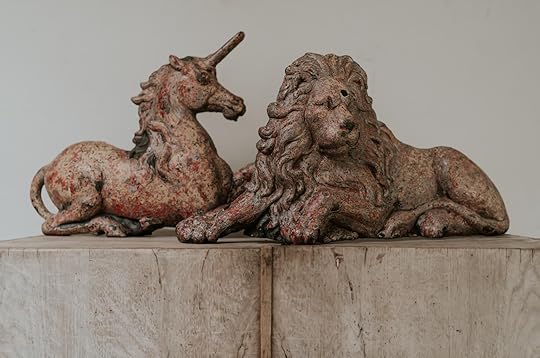
The legendary unicorn, of course, has been with us for thousands of years, appearing in Ancient Egyptian hieroglyphs. Persian unicorn stories date to the ninth century BCE. In early Europe, unicorns were known to protect water supplies. Their horns became valued in detection of, and as an antidote for, poison. Thus, the creature served as a symbol of purity.

Many aspects of our world have experienced accelerated change during the past few decades. Yet the unicorn has undergone great transformation before this. Introduction into Greek culture, and later Christianity, had dramatic influences. Now that we have less interest in purity and there's less of a market for magical horns perhaps the unicorn will endure as a symbol of grace. And, perhaps, acceptance.
October 3, 2021
Did dragons need to be saved?
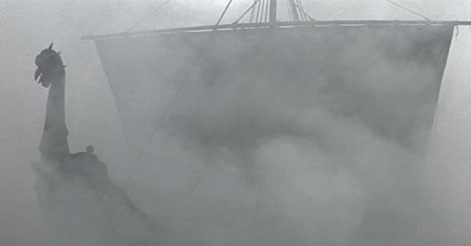
An Old Norse saga describes a Viking longship:
On the bow was a serpent's head and on the stern a hook shaped like the tail of a fish, and the tail, neck and stem were gilded. The king called the ship Serpent, for when the sails were unfurled they became the wings of a dragon.
Imagine the horror this dragon caused as it appeared through the fog.

Dragons come to us from nearly everywhere in the world, from Great Britain and Asia to Africa, Australia, and the Americas. Depictions of dragons date from the neolithic period throughout China. Dragon-slaying stories from Sumerian mythology survive from the fourth millennium B.C. In world mythology and literature this spectacular creature is prominent among the monsters.
Traditionally, dragons represent untameable power and terrible grandeur. In European culture dragons are malicious and full of trickery, and need to be slain, but they are also admired for their strength and are used to represent nobility in heraldry. In early times they were hunted by gods, and after Christianity appeared they became symbols of pure evil to be brought down by heros.
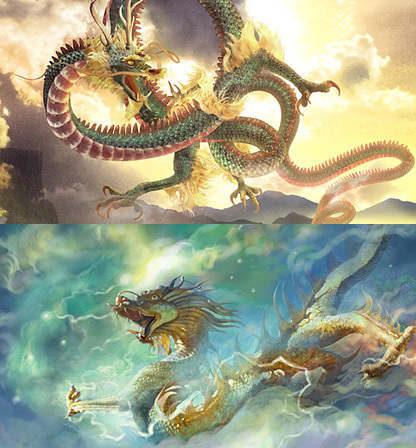
In Asia, dragons are spirits of nature, benevolent, lucky and wise. Often they are creatures of the air, associated with rain and water, and although usually airborne they lack wings. In Chinese folklore, dragons are related to horses and the gods use them for transportation through the heavens. Deities are shown in Buddhist imagery standing upright upon dragons, mastering them in their flight.

But modern author Anne McCaffrey gentled the dragons. She gave us dragon riders who have telepathic communication with their charges. The bond between the pairs is so strong that the dragon commits suicide upon the rider's death. McCaffrey's dragons of Pern are full of human morality and virtue. Just a year later, in 1968, Ursula Le Guin's A Wizard of Earthsea introduced us to a world where dragonlords can communicate with dragons. As in Pern, Earthsea dragons are not evil. Demonstrating Le Guin's familiarity with Taoism, her dragons are forces of nature: unknowable, fearsome, and destructive, and yet they possess ancient wisdom.
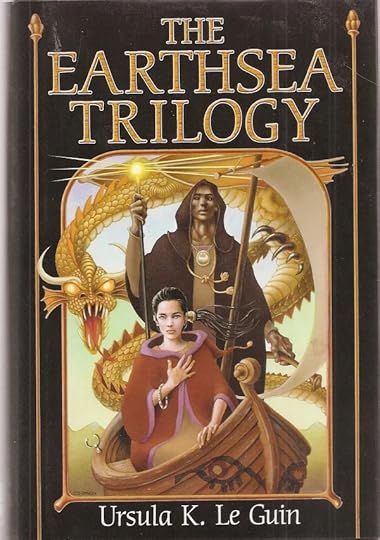
Following the Pern convention of modern fantasy, dragons have become amiable, even domesticated. The Earthsea stories have given rise to a separate literary legacy of dragons who are neither good nor evil, who are both feared and beloved. Dragons continue to represent power, but they are more human, involved with promises such as truces and subject to mastery. What does all this mean for us? Has our relationship to nature's volatility changed so much?
September 19, 2021
Rocinante and Dapple
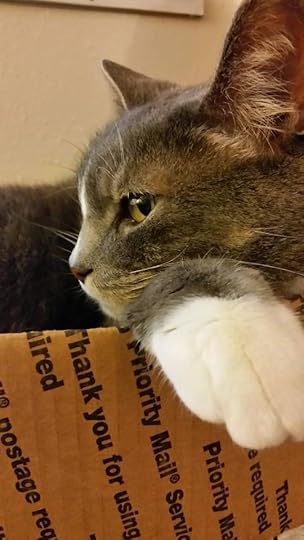 Photo by Diane Jhueck
Photo by Diane Jhueck Those who bond with animals develop a strange estimation of their transcendent abilities. And who can blame us? I'm certain that my old grey tabby understands every word of English. Last night at ten-thirty he demonstrated this once again.
���Catfish, I whispered to him as he was curled and sleeping, ���You've neglected your nine o'clock duties.���
He looked up at me bleary-eyed, shook his head, and stood up. Still glancing at me he hopped over to his usual position on the ottoman, where he sits at nine and stares until I eventually rise to serve the canned catfood.
 Painting by Cesare Agostino Detti
Painting by Cesare Agostino Detti We ascribe human qualities to animals because of our clouded view of them. Since they can't communicate in human speech we tend to forget that they think very differently. And that mysterious nonverbal part of them is connected with the spirit of nature in a way that we lose after our own infancy.
Our humanization of animals has a powerful place in stories. And nobody makes more fun of this than Cervantes.
Has there ever been a horse more fabulous than Rocinante? I���ve learned through years and travels that work animals are not pets, and this was certainly the case in early 17th century Spain. But due to reading far too many knightly romances, Don Quixote's obsession with chivalry causes him to elevate his nag and rename him Rocinante. The horse of a knight-errant commands respect. And the spirit of Rocinante, the horse who is more than he actually is, lives on through the centuries.
The squire Sancho, along with his donkey Dapple, represent humility and realism. Together, they take the brunt of much of the results of Don Quixote���s idealism. Sancho uses Dapple as a metaphor for himself and thus avoids confronting his master.
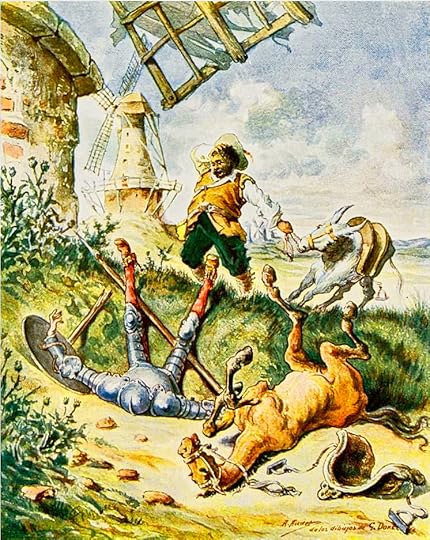 Book illustration by Gustave Dor��
Book illustration by Gustave Dor�� Don Quixote and Sancho share an exalted view of Rocinante. After the four suffer a beating, this time due to a farmer���s rage after the horse attempts to mate with his herd of mares, Sancho implores his master, ���See if your worship can make shift to rise, and then we will give some assistance to Rocinante, tho��� it be more than he deserves; for, he was the principal cause of all this nasty rib-roasting: never could I believe such a thing of Rocinante, who, I always thought, was as chaste and sober a person as myself: but, this verifies the common remark, that you must keep company a long time with a man, before you know him thoroughly.���
Don Quixote and his squire humanize their animals. Yet there is balance in all things. Idealism and realism are both important in our lives. While not the same as us, the creatures of our world experience life in many of the same ways that we do. We relate to them on a very deep level.
September 14, 2021
Perdido Street Station
 Illustration by Edward Miller
Illustration by Edward Miller The first of China Mi��ville���s Bas-Lag trilogy of New Weird Fiction, this is well-written horror/fantasy in a steampunk atmosphere.
New Crobuzon is a bleak city where humans and other sentient races live in fear of an oppressive militia. The authorities here punish criminals by cruelly reshaping their bodies, making them into monsters.
Isaac, a brilliant scientist, in his obsessive efforts to help restore flight to one of the desert bird-men, inadvertently turns a nightmare loose upon the world when one of his lab specimens escapes.
The story is visceral, with shocking plot twists as Isaac struggles to overcome the dream-killing creature. Through extreme darkness and sometimes gruesome morbidity, the author conveys, among other themes, the value of diversity and how inspiration and consciousness transform our world.
 Fan art by artmunki on deviantart
Fan art by artmunki on deviantart Mi��ville populates this world with various races, many of which are humanoid but with attributes of a wide range of animals, insects, or, in one case, cacti. In what is otherwise magical realism, these creatures are bizarre. This is how, in the first few pages, he introduces the fact that Isaac���s girlfriend has a scarab head: ���Light glinted in Lin���s compound eyes. Her headlegs quivered.���
And that���s the thing. It works. Even for those with no interest in nauseating macabre, the timing and style of this man���s writing is a joy.
So why does he include the misshapen ���Remakes��� and all sorts of species partially human? I think it is to ask: What is a monster? And once a monster, can someone be forgiven?
August 15, 2021
Literary Fiction Defined
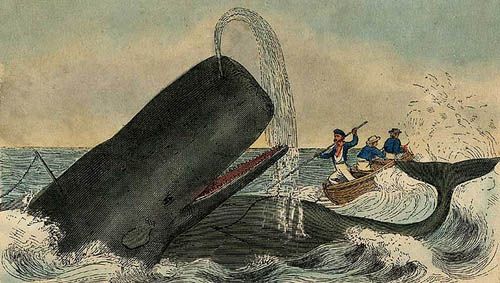
Literary. We all know what this word means. Sadly, it has connotations which cause confusion when applied as a label. Literary Fiction, a term common since the seventies, is controversial to the point that some people throw up their hands and declare all labels detrimental. But genre labels help readers and books find one another. They are important.
General understanding of the label Literary Fiction splits into two prominent views:
The first perspective holds that the term describes works of literary merit (basically, having won prestigious awards or academic acclaim.) I find this meaning less useful, and I wish a different identifier was used. ���Celebrated,��� maybe. Celebrated Fiction.
The other definition is one of genre. In this view, celebrated achievement is one of several common factors which may combine to define a work as Literary Fiction. Plot is often overshadowed by these distinguishing characteristics. The parameters are subjective, but a work of Literary Fiction includes one or more of these:
Particularly Deep Themes
All novels have a theme. The theme is the train of thought which runs beneath the surface and I suppose you could say that it answers the question ���What���s the novel about?��� rather than ���What happens?���
In Literary Fiction this theme is deeper and often less obvious. Sometimes we can���t even put our finger on what it is, exactly, but even so it will affect our experience.
Many expect a work in this genre to be an insightful study of contemporary issues or the general human condition. It is often referred to as ���serious��� fiction. These stories spend time in places it���s not nice to be. Happy endings are rare, satisfying ones not guaranteed.
In my experience, Literary Fantasy approaches these same subjects in a less direct way and is more likely to be inspiring or give us a laugh at ourselves. Of course there are plenty of dark stories, too. Fantasy presents an alternate world which is relatable but is an escape from the immediate concerns of ordinary reality, and this world can be a great place to engage readers in ethical or philosophical subjects, because the unique perspective of a new world encourages critical thinking. Literary Fantasy both frees the reader from our world and escorts them further into it.
Aesthetic Writing Style
Rather than a goal of entertainment, literary style writing is mostly concerned with developing the above mentioned themes. There is a plot, but it may be subtle and it may take some time for us to figure out what���s going on. The emphasis is on ideas and impressions, versus a plot that must move forward with every detail. The writer devotes greater time to features such as character development and description.
Literary fiction puts the reader to work, through advanced vocabulary, allusions, and typically a lot of subtext, and often the book gets better with each reading. The reader might not be as deeply immersed in the story at all times, pausing once in a while to think, Ah, what a beautiful turn of phrase! Or maybe, I see what you did there!
This writing is aimed at readers who enjoy a more artful look at things. There are parts of the story which will be considered slow by those who prefer plenty of action or a straightforward plot. The reader may not perch on the edge of their seat but it���s likely they���ll find themself thinking about the book for days after finishing.
Freedom From Conventions
Literary Fiction isn���t concerned with storytelling norms. There are no rules specific to the genre. Because their work is not usually intended for the broader market, authors are free to take risks, experimenting with any facet of writing they choose. There is less dependence on the tried-and-true, on formulas, hooks, or on catering to trends.
All this means a read that���s likely to be innovative, challenging, and possibly inspire a new outlook on life.
Do you agree with my definition of Literary Fiction? Feel free to comment by way of my Facebook group Literary Fantasy Book Discussion or email aru@habyrd.com
May 1, 2021
In future times
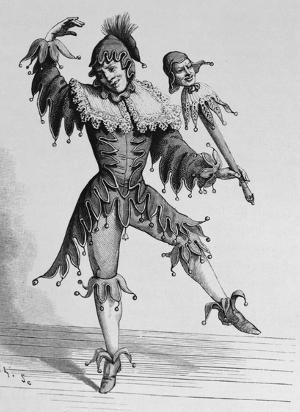
In future times
they will refer to us as primitives
and our sorrows, the mourning of our dead
will seem sad to them
in the way that injustice in our ancient world,
the cruel modes of entertainment,
the needless bloody wars
(for aren���t all wars needless?)
seem sad, but distant, to us.
We are better than that now.
Our depravity of thinking that one color, one type
resides above or below another on the scales of entitlement
or enlightenment
will seem odd.
And they will wonder how anyone could
embrace that narrative.
Will gullible rabble
ever be a thing of the past?
I hope so.
In future times may they look back on
our society of manipulators and followers
with a romantic tone, the stuff of stories,
fairytales.
Today, because of fools,
I watched a second son graduate through online ceremony from his college.
A beautiful ritual,
this triumphant multimedia project
gave the grads the best experience possible.
Honored and wise people of differing
backgrounds, genders, races, ages, and abilities
suggested that we recognize the power of
our losses
through the understanding of grief as the advancement of love for life and for their school.
They told the students to carry forward what has been learned during this time of hardship
and use their special knowledge,
gained in these traumatic years,
to help find real justice for all and healing for our world.
It was a memorable ceremony
and as a mother I am filled with joy and pride
but also sorrow for what my son and his fellows have been through
and because
I can���t hug him.
���The opposite of poverty is justice.���
���University of Michigan commencement speaker Bryan Stevenson, human rights leader.
April 22, 2021
A Viewpoint on Perspective

The human brain is remarkable. As you read these words, your brain will translate them into a personal summary of what you see. In an instant, you���ll judge the information, compare it to thoughts you already store, and decide what you will commit to memory.
These thought processes feed a mind that already serves a particular reality. We each live in a world of our own, shaped both by our experience and the physiology of our brains. Tiredness or a passing mood can further shape our interpretation. Your favorite author is detested by some people because those readers understand our world differently.
Have you ever been to New York City? You probably have your own ideas about the city. Andrew thinks it is dirty, and overcrowded. Stagnant. But Andrew broke up with Anna on their trip to New York City.

Our outlook on life is who we are. It���s interesting, sometimes even overwhelming, to think about how different our minds are from one another and how we perceive reality in individual ways. I write about this a lot. And I���m so thankful to have a little group of talkative writer friends who enjoy bouncing thoughts around with one another.
Last week, one of our group members posted an image online as a writing prompt. The photo, which Lisa took herself, shows a view along a paved local footpath as it disappears between tall trees. Each of us responded with an entertaining piece of writing. I love this group! What intrigued us all, though, is the completely different way in which we each responded to the image.
The three writers who were unfamiliar with the pathway each focused on the yellow line which suddenly ends, but they wrote strikingly different stories. Those who knew the trail well shared ideas triggered by the image but based upon memories of the area.

Back when the book was in the editing process, I asked our group to respond to a paragraph of Aru���s Realm. I shared the description of a timber lodge because I wanted to see if I had described it sufficiently. Did the others see the image in their minds that I wished to place there? I hoped they���d picture a beaver lodge on a pond, but as built up into an elegant Victorian-style resort.
For the most part, the lodges my friends described back to me were nothing like the one I felt I had portrayed! The writers related memories of whatever the word ���lodge��� had brought to mind. For the most part they brought up vacation spots, not made of logs at all, not from the era of my story, but beautiful places that these listeners were happy to recall. This was an eye-opening experience for me. I realized that I would have done the same thing.

Life is fluid. We see things differently from others, and even from ourselves over time. It does no good to grasp onto particular ideas too hard. So, take from your experience what enlightens and strengthens you at the moment. Six months ago, the same information may not have been as useful to you. We grow, we change, that���s nature.
Every listener hears a different story.
Every reader has their own experience.
We look out of our eyes into a world which has been created both by us and for us. We often believe what we have been told to believe. To make sense of it all, we must remember our history���the origins of our thoughts and opinions, on both a personal and cultural level.
It���s been said for centuries, ���We do not see things as they are. We see things as we are.���
February 12, 2021
Those Strange Things That Happen

I dislike mysteries. I always have. Whodunit novels and films are fun, and many of my favorite stories are puzzles in some form, but in real life I can���t stand the unexplained. This is tough. Plenty of things in life are unexplained. The big existential questions have always driven me nuts. Who needs that kind of stress? But those little day-to-day enigmas, those too are maddening. I���m certain I left that paperwork right there on the dinner table. Yet it���s nowhere to be found.

My father grew up on 25th Ave in San Francisco. A while ago, for fun, I searched for the house on Google Street View. Not knowing the house number, I easily found the house on 25th Ave. I hadn���t seen my grandmother���s house since I was a young girl, but could picture it in detail: the stepped gables, the archway over the front steps, the position of the garage on such a steep hill.
I remember when I was five, playing with the family photographs from Grandma���s end table drawer and looking down to the street from her beautiful bay windows���this is where I learned the name of those projecting arcs of windows. She had them hung with Venetian blinds.
I sent the URL for the street view to my older sister. She emailed back, saying this wasn���t Grandma���s house, and sent me a photo showing the actual address. The house I remember is the house two doors uphill! Grandma���s had no bay windows. There is no answer for this.

Another time, the checkbook was missing. My husband Kevin and I had searched all the logical places, and the ridiculous ones too. Days passed. We searched. Finally, partly through desperation but mostly in fun, I found a forked stick and decided to water-witch the thing. Blindfolded, I turned around several times, and followed the quivering stick straight to the lost item. The checkbook had fallen through the back of a drawer and was stuck midway down behind a cabinet. Was finding it pure chance? My subconscious guiding me? Spirits? There���s much in this world which defies logic. I dislike mysteries.
There is always a gap that science can���t quite reach. The unexplained. Fantasy stories include this misty realm because it opens up possibilities. And in doing this, these stories sometimes touch a part of our mind that understands things which we don���t understand that we understand.
Some people miss the point of fantasy writing entirely:
���At least contemporary and historical fiction have roots in their circumstances. Even science fiction holds some possibilities of the future. Fantasy doesn���t have the slightest bit of chance of ever being realized.���--Cristina Hartmann, in the HuffPost
This woman's words have been out there floating around the internet for several years. I run across this article once in a while and it absolutely yanks my chain. It's true that fantasy isn't for everyone, which is the point of her article, but good fantasy writing is always quite real.

More than one thing can be true at the same time. Fantasy stories demonstrate this. Many fantasies aren���t about the world we live in. But they are, you see. All speculative fiction has roots in our reality. Otherwise, we would have no way to comprehend it.
Not only do fantasy stories spring from our day-to-day world, they inform us about how to live our lives. Human beings have been handing down knowledge through fantastic stories since time out of mind. Sometimes we can more willingly see the shortcomings of our society if it is viewed through the lens of make-believe. Stories, songs, and poetry all reach deeply into the complex consciousness. They have much to teach us.
Fantasy does indeed stand a chance of being realized. An army of elves might not show up at the last minute to save everyone, but a team of valiant software engineers might. Or a crowd of peaceful protesters. Stories translate to reality in many ways.
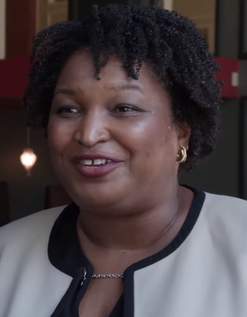
The magic of fantasy and the futuristic science of sci fi share tales that explore human nature. I have always loved Star Trek because the stories take place in a society which has evolved beyond our socio-economic disgraces. Stacey Abrams, the hero from Georgia, USA, is a big Star Trek fan. Stacey is interested in the fact that the franchise points out that those social issues can be addressed, yet conflict remains. In a 11/20 video on Nerdist.com she says. ���How willing are we to find solutions when we think we have the answers?. . . .Even after Earth has become a utopia, humanity finds multiple reasons to disagree.��� What interests her is how they integrate the diverse outlooks of the various federations and still ���tackle those challenges.���
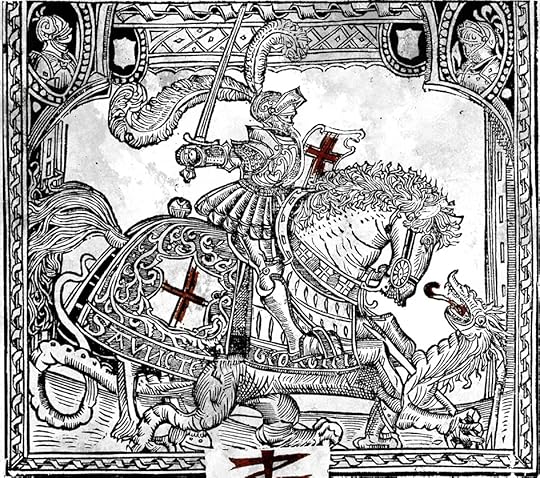
A fiction book is like a bonus lifetime in which to learn life lessons. The reader sees the world through someone else's eyes. Through the eyes of the narrator or protagonist, and of course the author. A person who reads a lot has a soul like a cut gemstone, many facets, many lifetimes of experience.
Fantasy is almost always about courage and honor or the spirit of adventure. Useful qualities for anyone. Magical elements of fiction tie in with our cultural memories of the monsters of yore, often the same monsters we face today. Self-absorption and greed, what nastier beast can there be! These power-hungry demons often steer the plot of a good story.
Fun and dreaming, creative thinking, joy de vive, these aren���t only for children. A life worth living is full of the fantastic! I think most people view the unknown as a vital element of what keeps life interesting. I love mysteries, I always have.
If you want your children to be intelligent, read them fairy tales. If you want them to be more intelligent, read them more fairy tales.
���Albert Einstein
I���m always irritated by people who imply that writing fiction is an escape from reality. It is a plunge into reality and it���s very shocking to the system.
���Flannery O���Connor
January 4, 2021
Mum
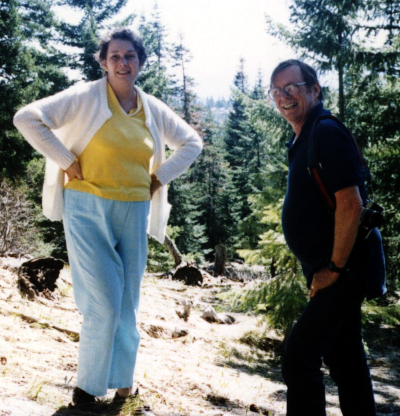
Our mothers are a part of us. Like it or not, we carry much of who they are inside ourselves. But we are also a part of them. A piece of me that lived within my mother Barbara was lost when she left this world last week.
My pain comes not from losing a happy or kind mother, but from saying goodbye to my beautiful, proud, and hurting mother. There is no healing for the knots of string which will never be untwisted. The fragments of her and my relationship are now carved in stone. I���m thankful, though, that we parted with love in our hearts, a love which has always been.
Mum was fond of mustard and liverwurst, and cashew chicken. Also thin mints, mint chip ice cream, and grasshopper pie. She had quite a sweet tooth actually, but she was smart about nutrition and ever since starting her family in the 1950s she made an effort to serve us healthy food.
My mother enjoyed the symphony, the opera, and theater. She knew something of the history of visual art. She painted a forest scene on the dining room wall of our home. Beautiful and tasteful, it matched the chandelier with tole metal flowers and leaves that hung above the oak dining table she and Daddy had refinished. In the early 1960s she created elegant pottery in her ceramics class. Once when she found herself without a babysitter, Mum brought her three young girls to the studio. She taught us to make snails by rolling a coil of clay and then curling most of it up to form a spiral for the shell. The vase she built that evening, with our lumpy little snails encircling the bottom, sat by the fireplace for fifty or more years.
The ocean. My mother loved to be near it, but not on or in it. She found happiness among tidepools, poking at tiny crabs, pocketing interesting pebbles, and experiencing the sound of the waves. The Oregon coast was dear to her, as childhood memories of visiting the beach cabin of her ���Auntie��� Una.The mountains called to Mum also, with their geology and breathtaking scenery. She and Daddy hiked and cross-country skied. She was a birdwatcher, and she knew the names of the shrubs and wildflowers. Fond of animals of all kinds, she passed that love on to her children and grandchildren.
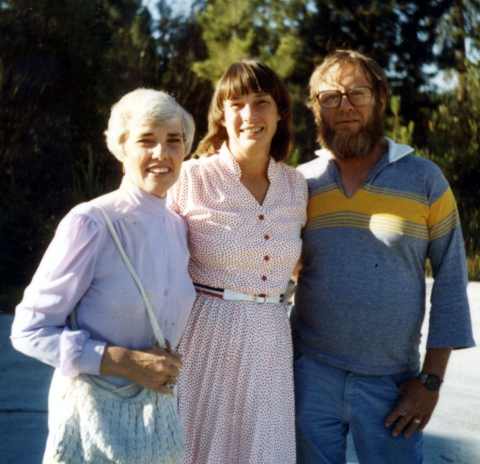
With a conviction that there is more to this world than meets the eye, Mum had an interest in transformative systems of thought. She wanted to understand the mystery of existence. Her curiosity about other cultures and their history led her to travel. She went on several elderhostel trips and spent some time in Sweden.
My mother cherished her time with her grandsons when they were young. She loved her family and also the greater community of the world. She cared about the environment. She donated both time and money to assist organizations working towards progressive political and environmental causes. It was her great joy to be here with us long enough to cast her vote in the November election.
A self-directed woman, my mother was apparently undaunted by gender boundaries of her era. When I was eight and my sisters were entering adolescence, Mum went back to school to get her masters in behavioral psychology. Our garage was full of cages containing rats. Rats ran mazes on our dinner table and pressed levers in a Skinner box. It was okay because all our family liked the rats. Exhausted in the evenings, Mum had me read her textbooks to her. I couldn���t understand a thing, but I could pronounce most of the words well enough that she could figure out what they were. Later we moved from California to Saskatoon, where she taught and did research at the university for a year.
When we all moved with my father to British Columbia, my mother was unhappy with the public schools there. She started the Fraser Valley Alternative School, enrolling the three of us daughters and a few other kids. The downstairs of our historic Victorian house was the campus. We kids developed critical thinking, learning community effort through a holistic educational program. Mum did a fantastic job with this school, which only ran for two years before we moved to the Seattle area. I���m thankful that throughout my life my parents encouraged me in all my artistic projects and in adventures big and small.

My mother had to cope with adversity in her life. She grew up during the Great Depression, the daughter of a principal and a schoolteacher. After college, she met and married my father, who was a good man (and handsome, to boot). Daddy, an electrical engineer, had a heart attack at thirty-five and was transferred to a job in a rural area. This had an enormous impact on the direction of both their lives. But more impactful than these sorts of setbacks, Mum had lost her little sister as a child, and later her own infant son. Both of these losses were devastating. Then, in 1982 my sister died at age twenty-four. Crista���s light meant so much to all our family that none could bear her passing.
Even with the heartbreak sustained by these losses my mother retained her sense of humor and her desire to leave this world a better place than she found it. I hope, wherever and however she exists now, she is able to see that she has done so.



